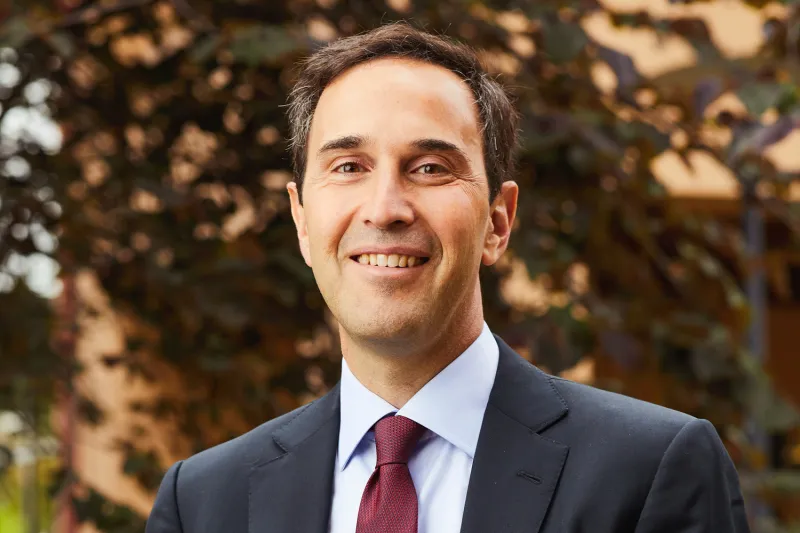Jonathan Levin ’94, who currently serves as dean of the Graduate School of Business (GSB), will serve as the next president of Stanford University from Aug. 1, wrote the Presidential Search Committee in a Thursday announcement.
Levin acknowledged challenges faced by the University. “They’re going to need thoughtful attention, but the foundational strength that makes American universities the envy of the world endures,” he said in an interview with The Daily.
The incoming president expressed optimism and said he hopes to “build on Stanford’s breadth of excellence across every discipline.”
Levin, 51, will succeed President Richard Saller who served on an interim basis following Marc Tessier-Lavigne’s resignation. His appointment comes amid leadership transitions at top universities across the country and heightened political scrutiny toward free speech, antisemitism and Islamophobia at Stanford. As president, Levin will oversee University affairs and fundraising, while shaping institutional priorities.
“As I look to Stanford’s future, I’m excited to strengthen our commitment to academic excellence and freedom; to foster the principles of openness, curiosity, and mutual respect; and to lead our faculty and students as they advance knowledge and seek to contribute in meaningful ways to the world,” Levin told The Stanford Report.
Presidential search committee co-chairs Bonnie Maldonado M.D. ’81, Lily Sarafan ’03 and Gene Sykes MBA ’84 wrote in the announcement that the committee was “thoroughly impressed by Jon’s personal qualities of integrity, humility, thoughtfulness, and optimism. We are confident that he is the right person not only to envision where Stanford can go, but to take us there.”
Over a seven-month period, the search committee’s 20 members conducted candidate interviews and more than 50 listening sessions on campus. The committee received over 800 nominations for the role, the co-chairs wrote.
Levin, who has served as the Philip H. Knight Professor and Dean of the Graduate School of Business since 2016, was appointed unanimously by the Board of Trustees. The announcement referenced his work at Stanford and in public policy — he has been a member of President Biden’s Council of Advisors on Science and Technology for the past three years.
His scholarship in microeconomics and industrial organization has garnered awards including the John Bates Clark Medal in 2011 for an outstanding economist under the age of 40. The Clark Medal is often nicknamed the “Baby Nobel” because numerous winners later become Nobel laureates.
Born in New Haven, Connecticut, Levin is also the son of former Yale University president and economist Richard Levin, who led Yale from 1993 to 2013. Despite his early exposure to economics, Levin studied English and mathematics as an undergraduate. He went on to receive an MPhil from Oxford University and a Ph.D. from MIT, both in economics.
After deciding on a career in academia, Levin returned to Stanford as a lecturer in 2000. He served as chair of the economics department from 2011 to 2014.
With Levin’s appointment, Stanford aims to bring new stability to the University’s leadership. Interim president Richard Saller took over this year after former president Marc Tessier-Lavigne resigned last August. Tessier-Lavigne’s resignation followed scrutiny over research he supervised that was first raised in a Daily investigation. A University report found several apparent manipulations in Tessier-Lavigne’s neuroscientific research that he had failed to correct, and identified a laboratory culture where he tended to reward those who could generate favorable results and marginalize those who could not.
The report concluded there was no evidence that Tessier-Lavigne himself manipulated data in the papers reviewed, nor that he knew about manipulation at the time.
Tessier-Lavigne’s resignation was followed by turnover in other University positions, including resignations from the vice provost for student affairs and the vice provost for education.
Saller’s interim term was shaped by tense discourse on campus — and disagreements between students and administrators — over the ongoing Israel-Gaza war. He worked closely with Provost Jenny Martinez, who was formerly dean of Stanford Law School and appointed to replace Persis Drell following her resignation last fall.
